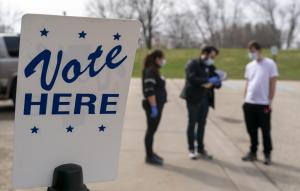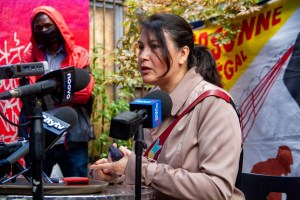Individualism is a central focus of Western society, and deeply affects our perception of professions and media. This focus allows us to isolate the individual from the institution when it supports our own ideological practices—while considering someone as part of a whole is “othering.” We can see this with the treatment of minorities and ostracised social groups. The media often portrays minorities as people with single defining characteristics, making these portrayals unrelatable and difficult to emotionally connect with. Meanwhile, other social groups are afforded the ability to have in-depth individual stories, both fictional and real.
This is not to say that unconformity in Western society is always praised, but the freedom to connect praise to an individual, and the normalisation of rewarding an exemplary individual is standard—creating biased narratives about different social groups. As discussed in NPR’s Code Switch, individualism is centred in Western education systems singling out a person in front of the rest of society as a default way to praise them. This is especially evident in dialogues of police brutality, and the pushback against defunding the police. A lot of police “copaganda” is specifically based on the idea of an individual police officer or person in law enforcement who is able to act morally, despite having an extreme amount of power and a position that lends itself to abusing others. Day-to-day, this often looks like the lists of acts of kindness that police officers have done or entire Facebook groups dedicated to “Good Cops.” These lists and positivity networks are often based in and supported by consumable media’s depiction of the police. Examples of such positive depictions are seen in shows like Criminal Minds and Brooklyn Nine-Nine that show the police as virtuous individuals, often portrayed as relatable role models, working within flawed systems.
Connecting viewers to the idea that the police are people like them who happen to work within potentially flawed systems, prevents a true examination of the inherent violence of police control. The individualistic stance allows the focus in TV shows to be character-specific, removing the issues of the system from the assessment of the character. For example, many police shows depict criminals as overly violent, morally wrong, and irredeemable, while giving the police control of guns and extreme force for their own protection—giving the police characters a moral high-ground. This allows the viewer to trust the characters’ decision to work in law enforcement and their social role when situations become morally nuanced. The separation from an inherently violent institution lets the systemic use of force be something that the characters only engage within a capacity outside of their main personality. The character might, for example, be a husband, or a father, or any other relatable stand-in for people to identify with. This allows their choice of working within a violent profession to be downplayed, and the narrative focus to remain on the fictional good that they do as an officer.
For example, the characters in Criminal Minds, one of the longest-running American TV shows, all fill the relatable roles of mothers, fathers, and friends, before they fill the role of being people in control of lethal force. Additionally, by focusing the audience’s viewpoint on the development of the main characters’ personal stories, the weight of the lives that they end or permanently effect is downplayed—side characters’ plotlines either only continue as villains, or stay in single episodes. Downplaying the significance of the side characters’ lives thus leaves the weight of the plotlines with the main characters.
While this focus on individuality allows narratives to focus on specific moralities by downplaying and cutting out parts of a story that do not fit the desired overarching implication. It is much easier to paint a picture of a moral individual working within harsh conditions when the individual is created to be relatable and easily idolized. The conditions themselves are never questioned because they are placed in a structure beyond the character’s control—the characters make small-scale decisions within fixed situations. In practice, the interplay between workers and work institutions has always been a mixed relationship. When it comes to law enforcement, it is not the case that the institution always forces people into situations where they must be violent. The focus on the individual takes the direction of the narrative away from questioning why the person wants to be in a position of power, which cuts off meaningful dialogues about police in the public-consciousness.







